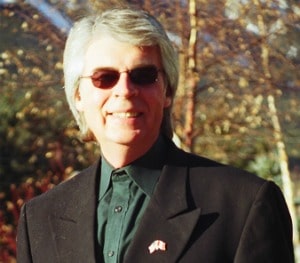
(By Ronald Robinson) Seems like radio continues to operate under a severely limiting set of circumstances. That these circumstances have all been self-generated, self-imposed, and are also self-perpetuated is, apparently, lost on the participants. Further, much of radio continues whining and mewling about it not receiving a “fair share” of advertising revenue. This comes off as a superficial, juvenile lament – unworthy of serious, thoughtful players.
For decades, radio has encapsulated itself in a sensory deprivation hood – an experience where the act of breathing is the only benefit. Hence, an industry gasping its way through a contemporary epoch of limited success. Anybody who has lost access to their sensory experiences — seeing, hearing, feeling, smelling, tasting — is destined to be banging into walls, falling over the furniture, and wandering off into traffic.
Further, the industry refuses to accept that it is, indeed, rattling around in the dark because its wearing of the hood. “What hood?” they ask. Radio has been doing whatever it can to up the game of their sales departments — and rightfully so. Yet, even as improvements in the sales departments are being attempted, there are, to my knowledge, no concerted efforts in the programming and creative departments to enhance what are radio’s only local products — the on-air communications from the talent-base and the generation of more effective and tolerable-to-the-listeners advertising.
The necessary knowledge and experience required for the production of more effective “live” radio and the production of superior, local advertising cannot and will not be addressed — not by anybody sporting The Hood. Again, the “What hood?” response comes up too often. In other words, these issues are not being taken up because there is likely no perceived awareness of the circumstance — as debilitating as it is — and so, there are no needs for them to be addressed. (Working in the dark will do that.)
Because my daddy didn’t toss me off the turnip truck in front of my local radio station when I was 15, I have had time enough to experience old-school, full-service radio and to figure out that owners and managers of the last 30 years have abdicated their responsibilities and ignored their opportunities to, if not keep, begin making the necessary and fundamental changes to the communicative processes that are dangerously required for radio to have much hope for the future.
Radio has taken the technologies that have become available over the last decades and plugged them in. Applying the new gizmos were not exercises in enhancing their services, but rather were used as cost-cutting devices. The strategy worked. Radio has cut costs to the point where local sticks are now rendered as almost irrelevant.
Meanwhile, there has been some recent hoopla about the opening of The inaugural Beasley Radio Talent Institute in Boston. The course is offered as a 10-day seminar that covers uhhh, ummm everything about radio! “Well, gosh,” I thought to myself. “How easy does it get?” When the leadership of radio considers a couple weeks at Radio Skool to be a sufficient and efficient enterprise, they are demonstrating an extreme lack of appreciation for what it’s really going to take to drag this business at least into the ‘90s.
Here is what it is going to take to move even smaller portions of the industry to where it can compete with other media: training in modern, communications methodologies for on-air talent and the copywriters, which is not only possible, but necessary for those who expect to enjoy prosperous futures. The process requires explanations, understanding, practice, repetition, and ongoing supervision. Participation will have to be a condition of employment. Radio is now at the point where the strongest of measures will be required, if there are to be any expectations of spectacular results. (See dealer for details. Accept no substitutes.)
Those who make the strategic maneuvers will also be able to drive their own radio competition into the sea. Nasty business, to be sure, but given the plethora of signals all over the map, a culling may be just the ticket. Those outfits that stay stagnant can look only to their own eventual demise. The state of so much of radio is no longer up for discussion. The time for decision-making is at hand.
Ronald T. Robinson has been involved in Canadian radio since the ’60s as a performer, writer, and coach, and has trained and certified as a personal counselor. Contact Ron at [email protected]






1 size fits all,
cut costs and cut some more,
blinders on and full speed
Hit the nail on the head. Good editorial.